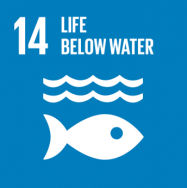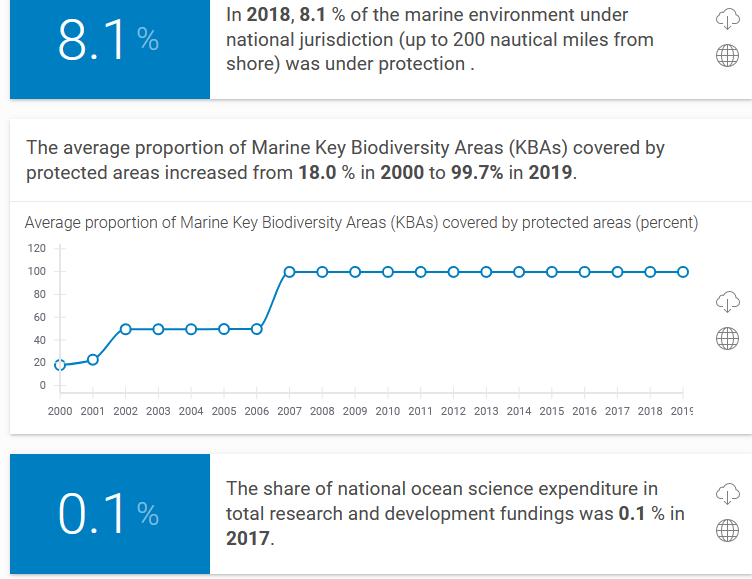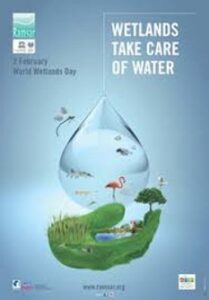Sustainable Development Goal 14. Life under water

Objective 14: Conservation and sustainable use of the oceans, seas and marine resources for sustainable development.
The ocean drives global systems that make the Earth habitable. Our rainwater, drinking water, weather, climate, coastlines, much of our food, and even the oxygen in the air we breathe are ultimately provided and regulated by the sea.
Careful management of this key global resource is a key feature of a sustainable future. There is a continuous deterioration of coastal waters due to pollution, and the oxidation of the ocean has a devastating effect on the functioning of ecosystems and biodiversity. This also has a negative effect on small-scale fishing.
Saving our ocean must remain a priority. Marine biodiversity is crucial to human health and our planet. Marine protected areas must be managed efficiently and have sufficient resources and provisions must be put in place to reduce overfishing, marine pollution and ocean acidification.
The oceans cover three-quarters of the earth’s surface, contain 97 percent of the earth’s water and make up 99 percent of the planet’s living space by volume.
14.1 Prevent and significantly reduce, by 2025, marine pollution of all kinds, in particular from land-based sources and activities, including the reduction of marine litter and nutrient pollution.
14.2 Achieve sustainable management and protection of marine and coastal ecosystems by 2020 with a view to preventing significant adverse impacts, including by strengthening their resilience and taking action to restore them, with a view to turning them into healthy and productive seas and oceans.
14.3 Minimize and address the effects of increasing ocean acidity, including through enhanced scientific cooperation at all levels.
14.4 Achieve by 2020 effective regulation of fish production and eradication of overfishing, illegal, unreported and unregulated fishing, and destructive fishing practices, implementation of science-based fisheries management plans to restore fish stocks as soon as possible until at least the levels allowing maximum sustainable yield determined by the biological characteristics of the species concerned.
14.5 Protect by 2020 at least 10% of coastal and marine areas in accordance with national law and international law and on the basis of the best available scientific information.
14.6 Introduce by 2020 a ban on certain forms of subsidies for the fisheries sector that contribute to overcapacity of fishing fleets and overfishing, eliminate subsidies contributing to illegal, unreported and unregulated fishing, and refrain from introducing such new subsidies. Recognizes that appropriate and effective, special and differentiated treatment of developing and least developed countries must be an integral part of the negotiations within the World Trade Organization on subsidies for the fisheries sector.
4.7 Increase by 2030 the economic benefits for small island developing States and the least developed countries of the sustainable use of marine resources, including through the sustainable management of fisheries, aquaculture and tourism.
14.a Increasing scientific knowledge, developing research capacity and marine technology transfer, taking into account the criteria and guidelines of the Intergovernmental Oceanographic Commission on marine technology transfer, with a view to improving ocean health and governance and enhancing the contribution of marine biodiversity for the development of developing countries, in particular small island developing States and the least developed countries.
14.b Ensuring access to marine resources and markets for fishermen engaged in traditional small-scale and subsistence fishing.
14.c Enhancing the conservation and sustainable use of the oceans and their resources through the application of international law as reflected in the United Nations Convention on the Law of the Sea (UNCLOS), which provides the legal framework for the conservation and sustainable use of the oceans and their resources. paragraph 158 of the document “The future we want”.




